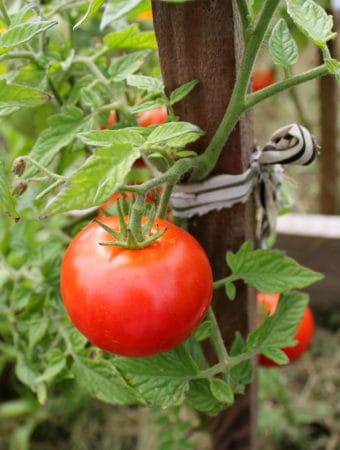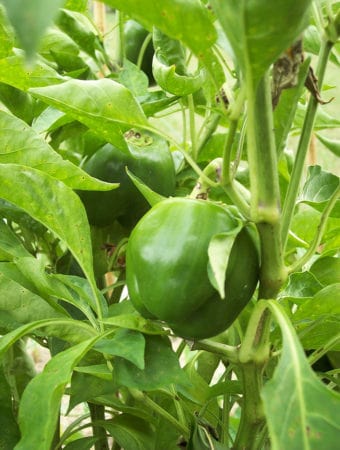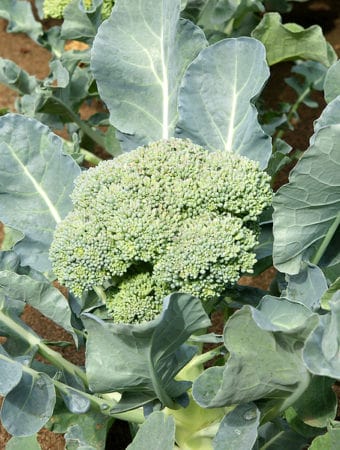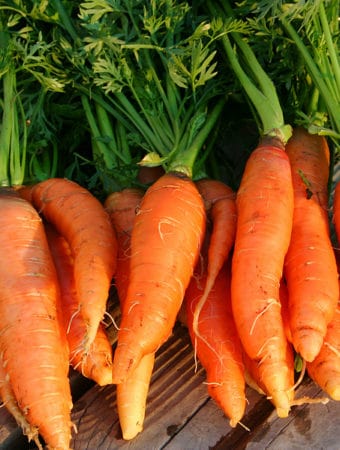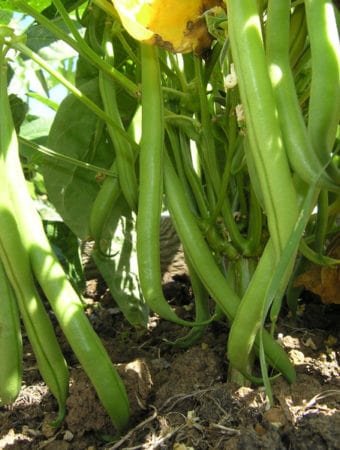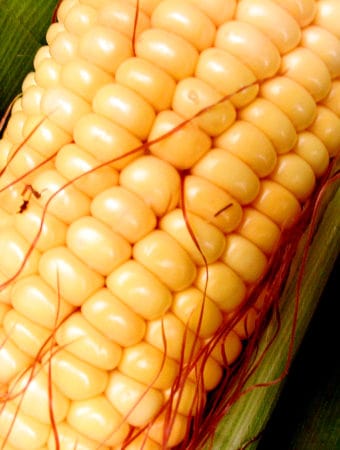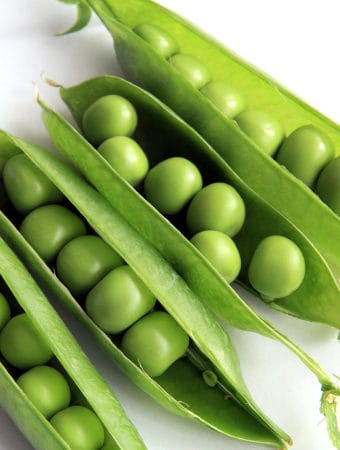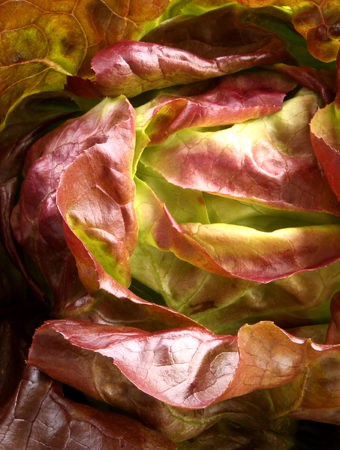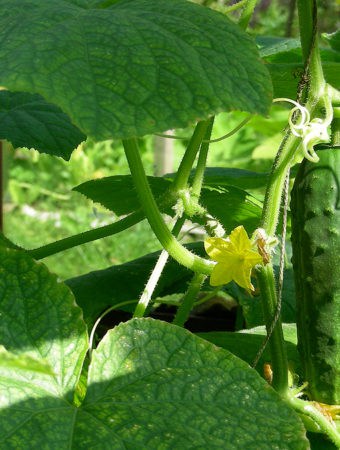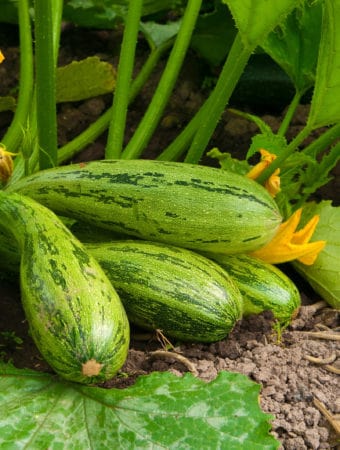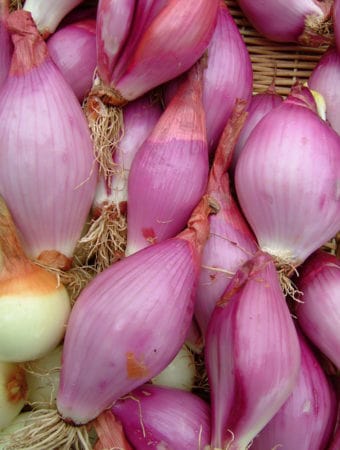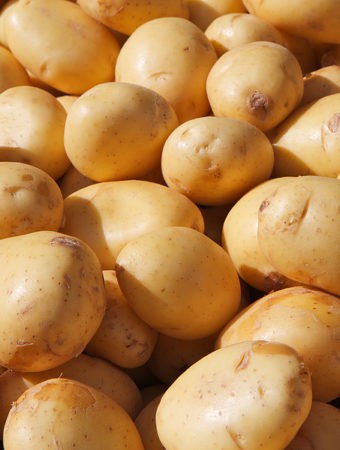The flea beetle is a shiny black insect 1/10 of an inch long. Some species have yellow or white curved stripes the length of the body. Flea beetles hop like fleas when disturbed.
Flea beetles are particularly attracted to stressed plants; plants that are nutrient weak or underwatered. They also feed on the tender leaves of young plants.
Flea beetles emerge in spring. Females lay eggs in the soil at the base of host plants. Eggs are minute, whitish, and hatch in about a week. Larvae are white and wormlike with brown heads to ¾ inch long; they feed on roots for 2 to 3 weeks then pupate. The pupae are still for 2 weeks then new adults emerge.
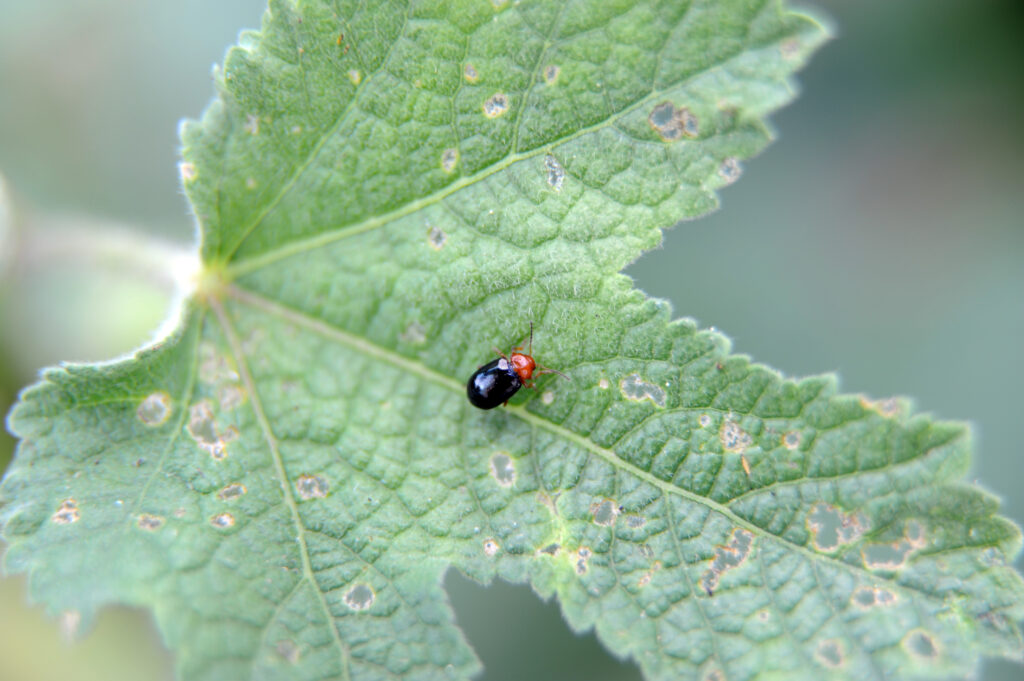
There are one or two generations each year. Adults overwinter in garden weeds and debris.
The flea beetle is found throughout North America.
Scientific name: Phyllotreta striolata
Target plants
Flea beetles attack basil, beans, beets, broccoli, Brussels sprouts, cabbage, cauliflower, chard, Chinese cabbage, collards, corn, eggplants, kohlrabi, muskmelons, peppers, potatoes, radishes, rutabagas, spinach, tomatoes, turnips, watermelons, and other vegetables.
Feeding habits and damage
Adults and larvae chew many, many tiny holes in leaves and transmit viral and bacterial diseases including early blight to potatoes and bacterial wilt to corn. The larvae feed on the roots of plants. Flea beetles can destroy small plants.
Organic controls
Dust with diatomaceous earth, pyrethrum, or rotenone for serious infestations. Apply spinosad or Beauveria bassiana to kill beetles. Juvenile nematodes will destroy flea beetle larvae.
Organic control calendar
Here is what you can do seasonally to control flea beetles:
- Before planting: Place white sticky traps in the garden (these will trap beneficial insects as well). Remove all weeds from the garden. Sow a trap crop of susceptible plants.
- At planting time: Use a trap crop to time the planting of your main crop; plant your main crop after beetles have attacked the trap crop. In spring, cover crops with floating row covers; seal the edges of the soil to prevent flea beetles from entering. Dust with diatomaceous earth; dust the whole plant from the ground up; dust in the evening to minimize damage to beneficial insects.
- While crops develop: Mist crops with water in the morning and early afternoon to decrease beetle activity. Beetles prey on plants that are moisture stressed. Use sticky traps around the garden. Dust with diatomaceous earth or rotenone for serious infestations. Use garlic or hot pepper spray on pests. Use a hand vacuum to remove beetles from plants. Spray pyrethrum on the undersides of leaves for serious infestations—two applications 3 to 4 days apart. Dust or spray with rotenone if an infestation is heavy.
- After harvest: Clean all garden debris from the garden after harvest; flea beetles overwinter in debris, weeds, and the soil.
Natural predators
Ground beetles and parasitic wasps. Animal predators include chickadees, purple finches, titmice, vireos, and warblers. Toads eat flea beetles and their pupae.
Related articles:
Vegetable Garden Organic Pest Control
Garden Planning Books at Amazon:
- Vegetable Garden Almanac & Planner
- Kitchen Garden Grower’s Guide Vegetable Encyclopedia
- Vegetable Garden Grower’s Guide
- Tomato Grower’s Answer Book


